Search Results
Showing results 1 to 16 of 16
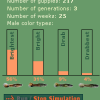
Flashy Fish
Source Institutions
Professor John Endler traveled to Trinidad in the 1970s to study wild guppies. In this activity, learners take part in an online simulation of Endler's work.

As The Stomach Churns
Source Institutions
In this chemistry activity, learners fill two test tubes with a solution of "artificial stomach fluid," consisting of hydrochloric acid in the same concentration as in human stomachs, some soap to cre
The Earth's Timeline
Source Institutions
In this group activity, learners will mark important developments of life on Earth on a timeline (each foot in length representing 200 million years).
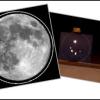
Magnification vs. Resolution: Can you see the flag on the Moon?
Source Institutions
This fun and simple hands-on astronomy activity lets learners explore the difference between telescope magnification and resolution.
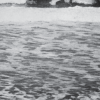
Seas in Motion
Source Institutions
In this outdoor, beach activity, learners use tennis balls, water balloons and other simple devices to investigate the movement of waves and currents off a sandy beach.
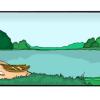
Rock Bottoms
Source Institutions
Learners add acid rain (nitric acid) to two cups that represent lakes. One cup contains limestone gravel and the other contains granite gravel.

Food Forensics: A Case of Mistaken Identity
Source Institutions
This lesson is designed to serve as an introduction to the immune system. It can stand alone or it can lead into further studies of the immune system.
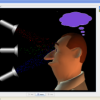
Color Vision
Source Institutions
In this online activity, learners make a whole rainbow by mixing red, green, and blue light. They can change the wavelength of a monochromatic beam or they can filter white light.

Clippy Island: An Investigation into Natural Selection
Source Institutions
In this activity, leaners will observe the process of natural selection on a population of birds called 'Springbeaks' over four seasons of breeding on an isolated environment called 'Clippy Island.' L
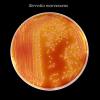
Demonstrating An Epidemic
Source Institutions
This experiment allows learners to experience a small scale "epidemic," demonstrating the ease with which disease organisms are spread, and enables learners to determine the originator of the "epidemi
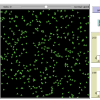
Evolution as Reproduction with Variability
Source Institutions
In this online activity, learners discover how random variation influences biological evolution.
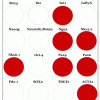
Microarrays and Stem Cells
Source Institutions
In this activity, learners use microarray technology to determine which genes are turned on and off at various points in the differentiation of pluripotent stem cells on their way to becoming pancreat

Seeing Is Believing
Source Institutions
This activity is designed to accompany the PBS documentary about African-American chemist "Percy Julian: Forgotten Genius." Learners look through two cups with small holes in them to simulate what it'

Artificial Intelligence: The Intelligent Piece of Paper
Source Institutions
This activity explores what it means for a computer to be intelligent and introduces the topic of what a computer program is and how everything computers do simply involves following instructions writ

Water Treatment
Source Institutions
Water treatment on a large scale enables the supply of clean drinking water to communities.

A Hurricane's Storm Surge Affects our Estuaries
Source Institutions
In this activity, learners construct a coastal landmass from sand and add features such as tidal creeks and barrier islands.
